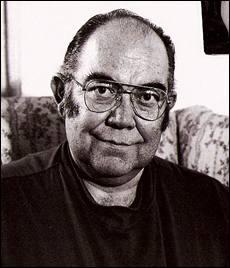Santa Fe Living Treasures – Elder Stories
<<Back to Treasures Index Alfonso OrtizACTIVIST ANTHROPOLOGISTHonored January, 1994 | Alfonso OrtizTraditional teachings of the pueblo way of life guide cultural anthropologist Alfonso Ortiz in all his writing, teaching, and commitments to social service. Born in 1939 and raised at San Juan Pueblo, the MacArthur Fellow says: "I like to balance my life. I like to balance a life of service with the books, articles, and teaching." His New Perspectives on the Pueblos and The Tewa World break new ground, giving outsiders an intimate understanding of Indian ways. Alfonso has also written extensively on American Indian myths, legends and tribal histories, and served as editor for the Smithsonian Institution's twenty volume Handbook of Native American Indians. A distinguished scholar who has taught at Princeton, Berkeley, Rutgers, Colorado College, Claremont College, and the University of New Mexico (UNM), he remains close to his roots. Alfonso remembers his youth at San Juan Pueblo during World War II as "very, very happy," although his family was poor. "I can't imagine any better way to grow up," he reflects. "I was raised by my culturally conservative grandparents. I was roused at 4 AM. by my grandfather to go to the fields, to irrigate and transplant. During the hottest hours, the boys went swimming in the Rio Grande, then, it was back to the fields. It was a life of hard work, discipline, activity, and lots of fun." As a student at UNM during the late 1950s and early 1960s, Alfonso chose a sociology major with a political science minor. He planned to attend law school. "Although there were no Indian lawyers, I was repelled when I got closer to the profession," he recalls. In a quandary about his future, he enrolled in a one-year master's degree program in Indian education at Arizona State University. There, he met his mentor, distinguished anthropologist Edward Dozier, who encouraged him to continue his studies outside the region, to avoid the label of provincialism. At the University of Chicago, Alfonso met people from all over the country and the world. Please see Volume 1 for complete text. |
